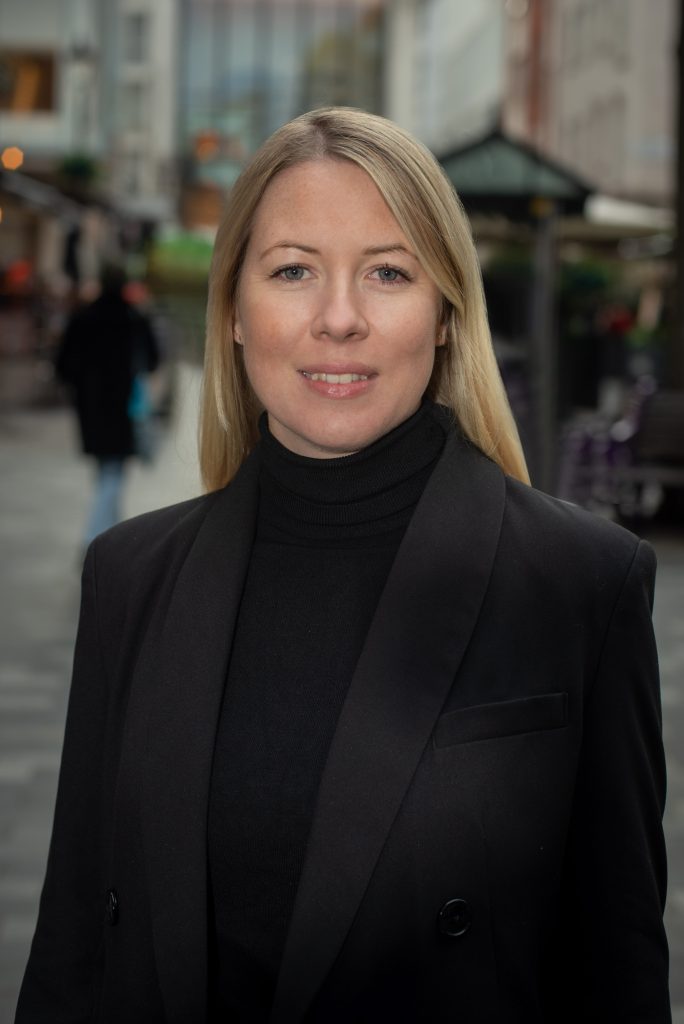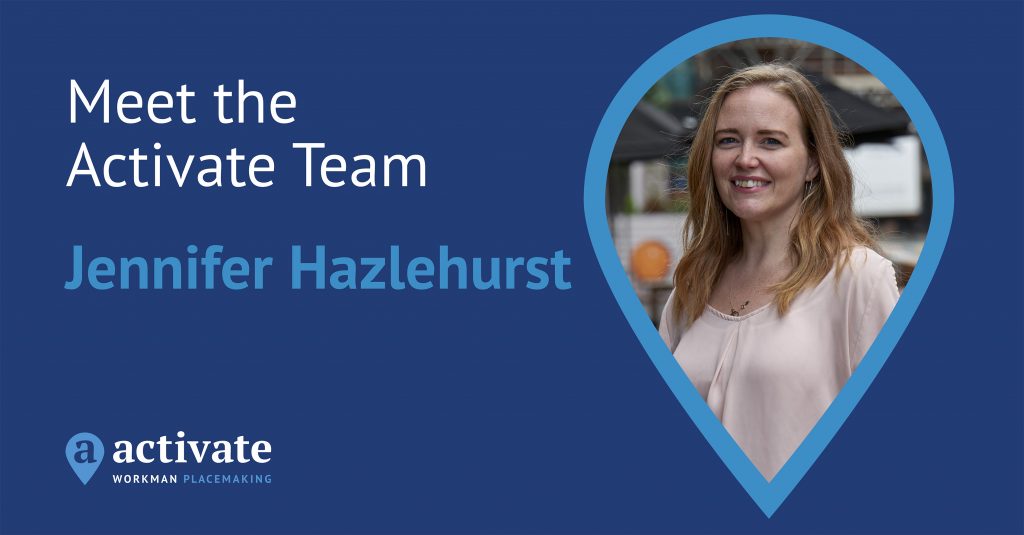
How can business parks become vibrant, community-driven ecosystems that prioritise employee experience and local engagement? Emma Henson, Place Marketing Manager at Activate Placemaking, explores the extra dimensions that can boost business parks from bland to brilliant.
It’s all about creating added services that make people’s life at work easier, along with a dash of community engagement to make people feel at home.
Take Birmingham Business Park, where this philosophy comes to life through a comprehensive approach to occupier experience. With a recent survey targeting the employees that work there, the park gathered 150 responses that provide deep insights into what modern workers truly want – to enable Activate to deliver the kind of events and services would make their work life better.
The numbers tell a promising story
More than 80% of respondents attended at least one event or activity last year, highlighting a clear demand for connection and engagement. One of the most requested additions? More live entertainment.
Timing also played a key role – Thursdays between 12pm and 2pm emerged as the prime window for events.
But it’s not just about fun and games. Occupiers expressed a strong interest in giving back, with many asking for more charity events and community-focused initiatives. In response, Birmingham Business Park is launching its first-ever Social Value Committee. The committee will meet quarterly to drive initiatives that benefit the community, environment, and workplace.
Additionally, based on the survey feedback, the Park has committed to making surroundings more user-friendly, by introducing clearer signage to make it easier for visitors and employees to navigate the space. BBP is also adding more seating areas across the park, providing places to relax and recharge. There will also be additional seating and gazebos to enhance comfort during outdoor events, creating a more enjoyable experience for all.
Making the workplace part of the local community
Business parks are increasingly opening events up to wider local communities, creating inclusive spaces that benefit both occupants and neighbourhood residents.
Croxley Park offers a blueprint for innovative workplace community building. The management team has crafted a dynamic events calendar that includes 12 large annual events and monthly smaller gatherings. With something different in the calendar every month, whether that it’s a workshop or just a few drinks or a variety of food trucks, to get people out of the office and socialising every week.
The innovative approach includes unexpected amenities that transform workplace experience. On-site services have become a game-changer, with examples like mobile barber units that are full all day, and convenient delivery options for pharmacist subscriptions. It’s all about providing the added service that employees no longer need to venture offsite for.
The strategy recognises a critical shift in workplace expectations. The goal is consistent engagement that makes the workplace feel like part of the community rather than just a location. This approach is particularly crucial in a post-pandemic workplace landscape, where employees have increased expectations about work environments.
At Croxley Park, whether it’s a big bash like the Croxchella Festival or firework display, or even the Christmas event, Activate publicises events widely so that parents in the local area might bring their children.
People-first business parks are a compelling value proposition
For investors, this people-first, community-first approach represents a compelling value proposition. Birmingham Business Park’s increasing community engagement, and Croxley Park’s consistent event programming demonstrate a growing appetite for more meaningful workplace experiences. By creating spaces that actively support employee wellbeing and local community integration, business parks can command premium rates and maintain high occupancy levels.
Data supports this approach, with increasing return-to-office rates suggesting that thoughtful amenities and community programming can successfully entice employees back to physical workspaces.
As business parks continue to evolve, the most successful will be those that understand a fundamental truth: workplaces are no longer just locations, but living, breathing communities that require nurturing, creativity – and a genuine commitment to human experience.
Amy Young, Senior Account Manager at Activate gives her viewpoint.

Attending a recent Creatives & Placemaking event, and then seeing Mary Portas’ e-newsletter drop into my inbox on ‘What makes a place?’, made me ask myself, is the work we’re doing at Activate really making a difference?
Digging deeper into some of the projects I’ve been personally involved with during my nine months at Workman, the answer is clear, we are!
From literacy partnerships and youth focus groups to environmental projects, meanwhile use activation and creative arts – these initiatives all play a key role in the wider place and marketing strategies we’re developing for our clients.
The role of investment in placemaking
The Portas newsletter commentary highlights the growing investment in placemaking, something we’re seeing firsthand at Workman, both in the assets we manage and as part of property management tenders we are responding to. People, place and customer experience are increasingly at the centre of the scope of work.
From investment in customer experience and place audits to long-term place strategies, we’re increasingly seeing asset managers and building surveyors integrate placemaking services into their complete development lifecycles – whether at the early master planning stages, or through to business planning, build and operational stages.
One comment in the newsletter struck a chord, “We need fresh thinking, ideas and dedication to creating places people love to be in – not because they have to be, but because they want to be. Places that enrich and keep enriching life, evolving with the ebb and flow of culture.”
Bespoke and unique
We know that placemaking isn’t a one-size-fits-all approach. The work our wider team is involved in ensures we’re truly understanding what makes a place unique. How can we harness local insight, respond to real needs and bring this to life in ways that align with a place’s future aspirations. This all supports our overall approach to placemaking, focused on supporting assets to attract and retain their customers.
Recent placemaking highlights:
Manchester Fort Shopping Park
A shopping park located a few minutes’ drive from the city centre, Manchester Fort serves a diverse, hyper-local catchment.
Recent community highlights include partnering with a local charity to host a youth focus group, involving young adults from the area. This provided a valuable opportunity to listen to their views and better understand the needs of this audience.
The session has sparked wider conversations around employment opportunities, CV workshops and skills development. Reviewing how Manchester Fort can support young people during their visits, including opportunities for involvement in co-creating events.
Marshall’s Mill
A former spinning mill located in the Holbeck area of Leeds, the area is home to 85 companies, employing 1,800 people – making it a bustling business neighbourhood.
Working in partnership with the on-site team, Activate delivers an annual programme of events at Marshall’s Mill, including initiatives that bring occupiers together, as well as those designed to engage the wider community.
Up next is a four-week series of wellbeing workshops, part of Mental Health Awareness Week and co-hosted with one of the on-site occupiers. The events feature a variety of curated activities, including a sketch club, outdoor bootcamp and mini massage sessions – all designed to normalise conversations around mental health and support employee wellbeing.
And beyond the results, there’s something deeply rewarding about this work – knowing we’re making a real difference in helping communities and places thrive.
Want to carry on the conversation? View Activate’s latest brochure and highlights video below, or contact us to discuss how we can bring your space to life.
Source: Portas POV e-newsletter, ‘What makes a place’ – March 2025.
Our Activate Placemaking team supported the annual Port Solent Comic Con in June. The event was a massive hit, with more than 13,000 fans arriving for a day of character-inspired fun, putting the Portsmouth Harbour retail park at the heart of its community.
For one day only, Port Solent retail park was transformed into a haven for pop-culture enthusiasts, offering an array of attractions that delighted attendees of all ages. Highlights included the Jurassic Park Zone, where visitors came face-to-face with prehistoric giants, and the chance to meet Jedi Masters showcasing their lightsabre skills.
The Joker Squad added a hint of chaos to the event, while fans were thrilled to step inside the iconic DeLorean. Meanwhile, the ever-vigilant Ghostbusters not only safeguarded the convention from otherworldly dangers, but also raised more than £2,000 for Cancer Research UK.






What lessons can office workspaces and retail assets can learn from each other when it comes to delivering the best tenant experience?
Retail and workplace assets alike are having to work harder than ever to deliver the best tenant experience to encourage people through their doors. Over the years, the retail sector has deployed a range of strategies to increase footfall and improve dwell times, relying on events and enlivenment such as family days, character appearances, food, and music. Today, with so many schemes no longer able to depend on the same old national retail chains, they are instead looking to smaller, local independents to occupy space, while also exploring the value of markets, and food & beverage, as a way to attract customers and build communities.
Esther Worboys, Placemaking Manager at Activate, Workman’s placemaking team, explains that retail assets are learning from other sectors in areas including community outreach and sustainability. “This is something that business parks have been doing very well for some time, and now retail is starting to adopt similar aspects of ESG such as using their wider outdoor space to for environmental and social benefits for the local community.”
Initiatives like installing beehives on site are popping up at shopping centres and retail parks as a way of delivering ESG goals as well as engaging local schools and colleges. At the NewRiver REIT plc-owned Cornmill Shopping Centre in Darlington, the introduction of bees, bird boxes and rooftop allotments, have not only added to the centre’s biodiversity, but also created community links through Darlington College and donations of produce to the local foodbank.
Better tenant experience – Cross-fertilisation of retail and commercial strategies
As Michelle Atack, Activate’s Destination Marketing Manager points out, asset managers who operate across both retail and commercial can see the benefits of strategies at one kind of asset and are starting to ask for something similar on the other. “They’re watching each other and taking a little bit of experiences from the retail element into the workspace world and vice versa,” she says.
On the flip side, although other types of commercial property are not trying to encourage spend and dwell time, they are aiming to build a network and community. And while the measurables for ROI may be less tangible for workplaces, engaging with occupiers and understanding what they want out of those community links or experiences is just as important.
“Doing the market research and understanding what occupiers want is another area where office property has learned from retail. It’s vital to find out what a particular community of people want to get involved in before organising events and activities,” says Esther.
At Workman-managed business park Croxley Park, for example, the demand is very much for family-friendly events, where everyone is welcome. The annual Croxley Park Summer Social event now includes entertainment for families and children, including bouncy castle, a roaming magician, street theatre, a DJ, cocktail-making, table-scaping, and floristry sessions. These large-scale events – popular for years across retail assets – are now a common calendar event at many commercial properties.

Harness social media as part of the tenant experience
During the pandemic, social media came into its own for commercial properties. Long utilised by retail assets to build communities of shoppers, it was harnessed by workplaces including Workman-managed Republic and Moretown, which were keen to reach out to employees with exercise tips and wellbeing content.
Post-pandemic, this strategy is vital for engaging employees who may be working from home part of the week. Social media is also being exploited at sites which are building links with local schools and local community groups.
A sense of community
Working collaboratively with local key stakeholders and partners brings greater results, and helps build and strengthen long-term relationships. Whether retail or workplace, it’s clear that building a sense of community is key to the success of real estate assets.
Community should be at the forefront of both retail and office destination marketing strategies – and campaigns to keep shoppers and employees engaged – because communities bring a sense of belonging. Over time, these initiatives improve the greater good of the wider community which properties serve and support.
Read more about our approach to Building Community across our managed portfolio.
Having worked in the property sector for more than 15 years, Jennifer Hazlehurst, Marketing and Events Coordinator within the Activate Destination Marketing team, explains how she applies creative thinking to get the best results from clients’ destination marketing campaigns.
Q: What three words describe Activate?
A: Refreshing, energetic, collaborative.
Q: What has been your standout moment at Activate so far?
A: Activate has allowed me to develop and utilise my creative skills, finally using that A-Level in Art & Design. One of my standout moments was first seeing my creative designs come to life on both social media and websites, and following the social media engagement they allowed us to generate for our clients.
Q: Tell us about a time you’ve put your skills to their best use on an Activate destination marketing campaign?
A: Earlier in the year, with restrictions in place, we ran a lot of online campaigns around calendar events. Producing digital designs for these allowed me to use my creative skills, with one online Valentine’s competition reaching more than 16 thousand people, generating 2300-plus engagements, and proving a great campaign highlighting the site and its offers.
Q: Tell us about a time you’ve felt most challenged while working at Activate, and how you overcame that challenge?
A: Working on the destination marketing service from its launch has been exciting but trying to have that push in growing the business while also working from home, often alone with three children, has probably been my biggest challenge. A supportive and fantastic team, as well as seeing the great opportunity that was ahead of me, kept me focused to keep going and take one day at a time.
Q: In what ways do you think the pandemic has permanently impacted destination marketing?
A: The pandemic has focused marketers on achieving more with less. Following so many budgetary and physical restrictions, the pandemic has driven more innovation, seen in some brilliant digital campaigns over lockdown. Hopefully this will continue an increase in marketing campaigns that are unique and exciting, both in content and delivery.
Q: What change would you make to a single aspect of the property sector and why?
A: Having worked within the property sector for more than 15 years, there are various areas that could benefit from change. The business rates system is archaic and does no favours for either landlord or tenant. It is slow in revaluations, which then negate any savings, and has no accurate reflection on the current retail market.
Q: What are your spare time pursuits and how do they influence your role at Activate?
A: Three small children keep me busy with little real time for my own pursuits, but they do allow me to indulge my love of the outdoors and exercise by keeping them active. I love DIY and I am an avid reader. My children help develop my organisation skills (and help me stay calm in difficult situations) and I think my own pursuits encourage my innovative and creative side.
Q: What is your favourite building / retail experience worldwide, and why?
A: Having visited retail experiences as different as the mall in Dubai and the old markets in Budapest, I find it fascinating looking at how different and yet successful retail experiences can be. Whether it be an expansive, gleaming mall like Dubai’s or a crowded market steeped in history like Budapest, they can be equally emotive for such different reasons.
Q: What book or podcast do you recommend, and why?
A: As part of my degree, I studied a book called True Tales of American Life, which is a collection of stories written by people throughout America and edited by Paul Auster. It was one of the most moving books I’ve ever read. It made me laugh and cry, and showed a true insight into all aspects of human experience in an honest and refreshingly written text by everyday people.
To find out more about the Activate Destination Marketing Service visit > https://bit.ly/3DhY11s
If you have a retail scheme, office campus or business park where the marketing needs to work harder, contact either Michelle Atack or Andrew Sparrow.
A quick blink into the sunlight after more than three months of lockdown shows that predictions abound for a rush back to shops and restaurants.
As consumers shake off lockdown fatigue and prepare for a summer of social activity, pent-up demand for a return to normality is set to spark a retail footfall rise of 48% when non-essential retail reopens in England from April 12, according to Springboard. The forecast increase means footfall will be 128% higher than the same week in 2020, although it will still remain 62% below 2019 levels.
In shopping centres and retail parks, which have maintained a steady flow of footfall during lockdowns due to their higher proportion of essential retail offerings, footfall is predicted to rise by 46% and 26% respectively in the first week of reopening, says Springboard.
At the end of the first two lockdowns, footfall rose by more than 40%, yet greater increases are expected this time due to the success of the vaccination programme and the concurrent opening of retail and hospitality.
As shopping centre and retail park managers looked to keep their brands alive, they turned to destination marketing as an essential tool. And in the absence of live events, they have pivoted towards digital marketing and social media. Even in the case of significantly reduced marketing budgets, centre managers have been able to grab a bigger bang for their buck by leveraging the expertise of Activate’s Destination Marketing team.
How destination marketing will boost retail rebound for 2021
Many centre managers and retail real estate owners have reapportioned budgets to focus on digital engagement through social media. Their properties have benefited accordingly by remaining front of mind, and front of wallet, for consumers. Our Destination Marketing team works to research and present a menu of covid-secure promotional options, from which individual centres and retailers can select.
Campaigns around Christmas, Valentine’s Day, Mother’s Day and Easter have kept customers interested, with online gift guides and creative video content designed to drive visitors to shopping centres and retail parks. A mix of content has been developed for a range of platforms, including animation and video for Instagram Reels, in partnership with individual retailers and sponsors, for promotions which are activated on site. These have included competitions to win an M&S Easter hamper, handouts of single red roses, chocolates, branded face coverings or hand sanitiser giveaways.
In one cost-effective campaign, designed to appeal to a regional audience for Vangarde Shopping Park, York, the marketing team achieved more than 17,000 engagements and 1700 comments from one single, simple post. ‘What do you call this?’ with the hashtags #Yorkshire and #Vangarde showed images of simple items such as a bread roll and a bath robe, and invited comments on their different regional names. This kind of engaging content, which has encouraged communities to use destination social media platforms, has kept the brand and its retailers alive and top of mind during challenging times, when many stores have had to remain closed. The key is to get online communities talking and create the intent of physically visiting the properties at the heart of any creative material or activation at some point in the future. Onsite teams across a range of properties have also been encouraged to create their own ‘welcome back’ video content, showing they are ready for customers to return.
Campaigns to suit properties large and small
Our Destination Marketing team is equipped to deliver projects to suit the needs and budgets of a variety of schemes, and work is designed to fit the demographic of shoppers and retailers within each property. While some schemes have benefitted from multi-channel marketing, incorporating radio and print campaigns, others have maximised a retailer-sponsorship approach. For example, when delivering messages around the covid-secure aspects of each site, the team has built in short, sharp, sponsorship tags for affiliate retail brands to ensure that they are driving the impact for those retailers that are open and ready for custom.
Many properties that feature restaurants with al fresco dining areas have been revamping these to be covid-secure. Here, we’ve worked directly with the restaurants to promote their rejuvenated outdoor space and used the content to include instructions about making reservations in the new seating areas, in order to drive bookings.
Looking ahead, the team is optimistic about real-life events at shopping centres and retail parks returning later in the year. In the meantime, it is also delivering marketing activations that provide social value, such as the #nochildgoeswithout campaign being run at The Core in support of a Leeds charity that aims to give every child in need an Easter egg.
As the big reopening on April 12th approaches, and customers become keen to visit bricks-and-mortar destinations as a leisure activity once more, it’s time to make sure all that footfall is heading in the right direction: towards your property.
By Michelle Atack, Digital Marketing and Events Associate, Activate
To find out more about the Activate Destination Marketing Service visit > https://bit.ly/3DhY11s
If you have a retail scheme, office campus or business park where the marketing needs to work harder, contact either Michelle Atack or Andrew Sparrow.
Our recent article Remobilising Retail Destinations , highlighted the value of destination marketing teams for retail assets. They have a crucial role to play, both promoting the customer experience and managing customer expectations of the social distancing measures that will inevitably be in place.
As part of an on-going growth in our destination marketing services for retail assets, we are delighted to have expanded our retail marketing team.
Michelle Atack joined the team as Digital Marketing and Events Associate. She will co-ordinate marketing activities for a growing number of shopping centres and retail parks across the country. Michelle has previously held Marketing Manager roles at Derwent Group and Cushman & Wakefield. In those roles she was responsible for schemes including Liverpool Shopping Park and Manchester Corn Exchange, managing digital marketing campaigns, media management and local community stakeholder engagement.
Welcoming Michelle to the team, Andrew Sparrow, Director of Placemaking said;
Now more than ever, marketing and communications has a vital role to play in driving footfall, encouraging customers to return to safe and welcoming retail environments, collaborating with retailers and local communities. We are seeing a real demand from investors to invest in promoting their schemes. Michelle’s appointment will add valuable expertise and experience in this area. We look forward to working together on a number of new instructions.
To find out more about the Activate Destination Marketing Service visit > https://bit.ly/3DhY11s
If you have a retail scheme, office campus or business park where the marketing needs to work harder, contact either Michelle Atack or Andrew Sparrow.
